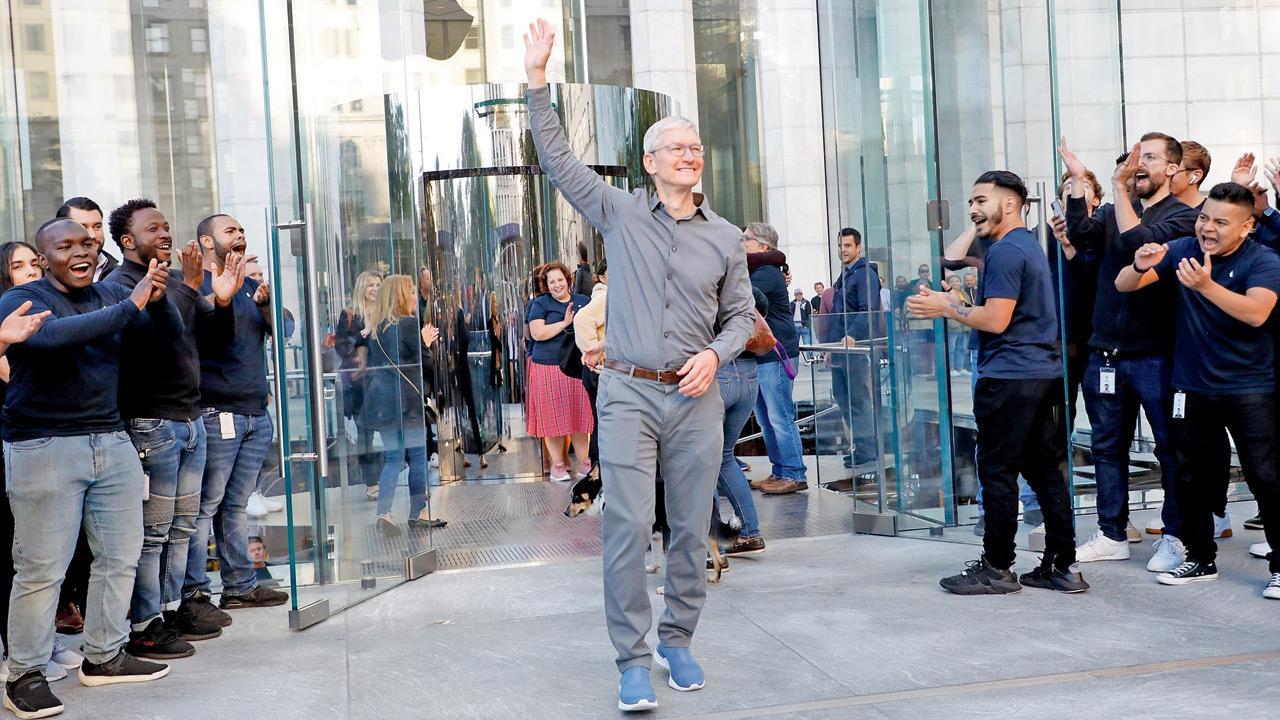Raising your voice at the workplace to demand institutional change can be a contentious topic, and it’s one that organisations are going to have to learn to face in today’s world

Apple’s CEO Tim Cook recently addressed activism-related concerns in an all-staff meeting. Pic/Getty Images
Last week, when Apple’s CEO Tim Cook addressed concerns in an all-staff meeting, the topics for discussion were uncharacteristically wide-ranging — from public assertions of employee discontent on matters such as pay equity, to the company’s stance on political matters. Importantly, the meeting shone a light on the unmistakable elephant in the corporate boardroom — employee activism, which is a rising instance in the modern workplace. “Employees championing causes that matter deeply to them isn’t necessarily a threat to organisations. In India, where the corporate workforce is at a strength of 400 million [a third of the entire population], it’s obvious that there will be more than a few individuals who care not just about their direct role in their current company, but also socially-relevant causes, including the environment and matters that impact the broader society.
ADVERTISEMENT
“It’s impossible to separate the social from the professional, given the fact that many professionals are working with future-oriented companies, which are responsible for ushering change into the world,” says K Sri Ganapathy, co-founder of Futwork. He emphasises that it has now become critical for the management to actively listen to what is happening within the company — a marked change since historically, organisations around the world have been focusing solely on external stakeholders. “The lens is now shifting to internal stakeholders and proactively taking steps to make them feel heard and understood,” he adds.

Employee activism makes employees feel empowered to bring healthy change to the organisation. Representation pic
This is important because employees are an organisation’s greatest asset. Employee activism is one way in which employees feel empowered to bring healthy change to the organisation. “It helps all organisations, especially larger companies; keep their ear to the ground about what the wider world is thinking. Further, by positioning yourself as an organisation that is receptive to change, you stand a much larger chance of your current workforce actively lobbying for you. In a scenario where it is difficult to attract and retain good talent, such referrals are invaluable. More often than not, employees today are quick to switch jobs if they are not completely satisfied with their working conditions. We must, therefore, value those who stick around and demand more and better, because this means they genuinely care about the organisation,” Ganapathy explains.
Concept to action
In a reality where employees bring with them a diverse array of value systems, it is impossible to address all their concerns as and when they come up, points out Sonalee Panda, a business mentor. “For organisations, it takes time to listen, change or even understand what the external environment is. As an employee, if you really want to make a difference, it is important for you to work within the system in terms of engaging in dialogue with the management, educating stakeholders to change their thought processes, and adopt a fact-based approach. This will always be more effective than a more emotion-guided approach where you challenge the organisation for not meeting your expectations in terms of whatever cause is dear to you,” she elaborates. Any change made by an organisation will have ramifications across the value chain, and thus organisations will, by their very nature, be slow to respond. It’s crucial that employees acknowledge that, if they want to make a real impact, she adds.

Sonalee Panda, K Sri Ganapathy and Harsh Rohatgi
An equitable environment
Both Ganapathy and Panda assert the importance of creating an environment where employees feel safe and encouraged to speak up. “Brown bag sessions [informal team meetings] on various topics can help, as can a participatory approach where employees are encouraged to be a part of the change they want to see,” says Panda. This, says Brajesh Bajpai, a leadership coach, is often much easier said than done: “It’s vital to deliver your message in a way that’s accepted rather than being perceived as a threat or a challenge, and then offering to engage with [or lead] the responsible teams to see your efforts bear fruition. This requires maturity and, if handled right, can actually raise your status in the organisation. Simply put, don’t be a martyr but view yourself as an agent of change.” From the organisation’s perspective, employees must be presented with grievance redressal mechanisms where they feel free to speak out, without fear of reprisal, adds Harsh Rohatgi, CEO of Qube Cinema Technologies. “The HR can act as a liaison between employees and the management, to ensure that the process is fair,” he says.
Focus on your core values
When presented with a sea of issues from their workforce, which can be admittedly overwhelming, managers must pick those that are most aligned with their core values and guiding philosophy. “This philosophy must be well-presented and communicated to employees throughout the course of their journeys within the organisation. Further, it must not be set in stone and be adaptable to suit the needs of changing times,” advises Ganapathy. This will ensure that employees know and understand your rationale for choosing to work on certain challenges over others, without them feeling diminished or otherwise overlooked.
Make demonstrable progress
Once an organisation has committed to a certain cause, they must share with employees their plan or at least a tentative roadmap with concrete milestones. “The worst mistake an organisation can make is to pay lip service or, conversely, make sweeping changes that aren’t sustainable, just to quiet the discontent. This will invariably backfire and do more harm than good,” says Ganapathy. Rohatgi says that most organisations are legally mandated to dedicate resources to socially-relevant initiatives — invested employees can be included in this process, under the guidance of external subject matter experts who can advise them on their direction, monitor their progress, and ensure that their efforts bear fruit.
 Subscribe today by clicking the link and stay updated with the latest news!" Click here!
Subscribe today by clicking the link and stay updated with the latest news!" Click here!







